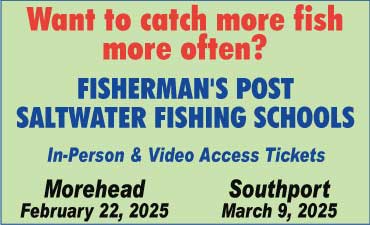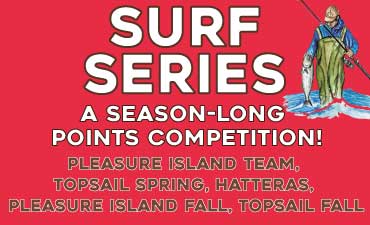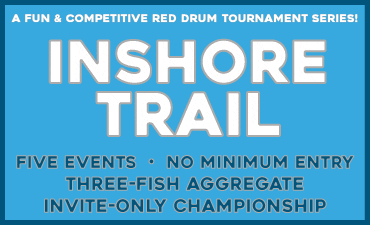Releases – June 12, 2014
NOAA Fisheries is seeking public comment on Amendment 8 to the Fishery Management Plan for Coral, Coral Reefs, and Live/Hardbottom Habitats of the South Atlantic Region (Coral Amendment 8). The Notice of Availability for Coral Amendment 8 published in the Federal Register on May 20, 2014 (79 FR 28880), and the comment period ends on July 21, 2014.
If approved, the amendment would extend protections for deepwater coral ecosystems by expanding the boundaries of the Oculina Bank Habitat Area of Particular Concern, and the Stetson-Miami Terrace and Cape Lookout Coral Habitat Areas of Particular Concern.
Within Habitat Areas of Particular Concern, the use of bottom longline, bottom trawl, dredge, pot, or trap is prohibited. If aboard a fishing vessel, use of anchor, anchor and chain, and grapple and chain is prohibited. Mid-water trawls are also prohibited in Stetson-Miami Terrace and Cape Lookout Coral Habitat Areas of Particular Concern.
Coral Amendment 8 proposes a transit provision through Oculina Bank Habitat Area for Particular Concern for fishing vessels with rock shrimp onboard. When transiting through the area, vessels would be required to have gear appropriately stowed and maintain a minimum speed. Vessel speed would be determined by a vessel monitoring system registering a ping (signal) at a rate of 1 ping per 5 minutes.
Comments on Coral Amendment 8 must be received no later than July 21, 2014, to be considered by NOAA Fisheries.
Coral Amendment 8 may be obtained from the NOAA Fisheries website, or the South Atlantic Fishery Management Council’s website at www.safmc.net.
Submit all electronic public comments via the Federal e-Rulemaking Portal. Go to http://www.regulations.gov/#!docketDetail;D=NOAA-NMFS-2014-0065, click the “Comment Now!” icon, complete the required fields, and enter or attach your comments.
Submit all written comments by mailing NOAA Fisheries, Southeast Regional Office, Sustainable Fisheries Division, c/o Karla Gore, 263 13th Avenue South, St. Petersburg, FL 33701-5505.
NOAA Fisheries will accept anonymous comments. Attachments to electronic comments will be accepted in Microsoft Word, Excel, WordPerfect, or Adobe PDF file formats only. Comments received through means not specified in this bulletin may not be considered.
For more information on Coral Amendment 8, please visit the Frequently Asked Questions found at http://sero.nmfs.noaa.gov/sustainable_fisheries/s_atl/coral/2014/am8/index.html.
The Artificial Reef Program for the N.C. Division of Marine Fisheries will hold a public meeting at 5:30 p.m. June 17 at the Ocracoke Foundation, 278 Irvin Garrish Highway, Ocracoke.
The purpose of the meeting is to discuss expansion and enhancement plans for Artificial Reef-298, Ocracoke Reef.
The Artificial Reef Program plans expand the permitted reef site to correct long-time discrepancies between the permitted area and the existing reef site. The program also plans to deploy new concrete materials on the site.
Written comments on the reef plans will be accepted until July 3 and may be sent to Gregg Bodnar, N.C. Division of Marine Fisheries, P.O. Box 769, Morehead City, NC 28557, or to Gregg.Bodnar@ncdenr.gov.
For more information, contact Gregg Bodnar by email or at (252) 808-8053.
The Oyster and Hard Clam Fishery Management Plan Advisory Committee to the N.C. Division of Marine Fisheries will meet at 6:00 p.m. June 16 at the Department of Environment and Natural Resources Regional Office, 943 Washington Square Mall, Washington.
The committee will identify potential management issues to address in amendments to the Oyster and Hard Clam Fishery Management Plan.
For more information, contact Tina Moore at Tina.moore@ncdenr.gov or (252) 808-8082 or Stephen Taylor at Stephen.Taylor@ncdenr.gov or (910) 796-7289.
As Congress continues exploring reauthorization of the Magnuson-Stevens Fishery Conservation and Management Act (Magnuson-Stevens Act), the primary law governing U.S. marine fisheries management, the recreational fishing and boating community continues to seek substantive legislative changes that will improve saltwater recreational fisheries management. The House Natural Resources Committee recently approved a Magnuson-Stevens Act reauthorization bill, H.R. 4742, the “Strengthening Fishing Communities and Increasing Flexibility in Fisheries Management Act,” which received mixed reviews from recreational fishing and boating community leaders.
“While we appreciate Chairman Doc Hasting’s interest and efforts in Magnuson-Stevens Act reauthorization, we would like to have seen more done in this bill to address the needs of the recreational fishing community,” said Mike Nussman, president and CEO of the American Sportfishing Association. “This bill includes several provisions that we support, such as easing the strict implementation of annual catch limits and improving stock assessments for data poor fisheries, but unfortunately our top priorities are not meaningfully addressed.”
During 2013, members of the Commission on Saltwater Recreational Fisheries Management met to deliberate and debate strategies to improve saltwater recreational fisheries management, culminating in the commission’s report, A Vision for Managing America’s Saltwater Recreational Fisheries, which identifies six key policies that would achieve the commission’s vision. Those recommendations primarily focus on Magnuson-Stevens Act reauthorization.
Co-chaired by Johnny Morris, founder and CEO, Bass Pro Shops, and Scott Deal, president, Maverick Boats, the commission’s report incorporated input from a wide range of experts and other stakeholders, including economists, scientists, federal and state agency administrators, conservationists, charter captains, and individual recreational anglers.
“Since its inception, the Magnuson-Stevens Act has focused primarily on commercial fisheries to the detriment of the nation’s 11 million recreational fishermen and the nearly half a million jobs they support,” said Jeff Angers, president of the Center for Coastal Conservation. “Revising the law in a way that incorporates the goals and needs of anglers is long overdue. Our community has put forward the policy changes that will set the foundation for an effective saltwater fisheries management system, but we need Congress’ help by enacting these common sense and non-partisan policies.”
The recommendations offered by the Commission on Saltwater Recreational Fisheries Management, commonly known as the Morris-Deal Commission, include: (1) Establishing a national policy for recreational fishing; (2) Adopting a revised approach to saltwater recreational fisheries management; (3) Allocating marine fisheries for the greatest benefit to the nation; (4) Creating reasonable latitude in stock rebuilding timelines; (5) Codifying a process for cooperative management; and (6) Managing for the forage base.
“In addition to overlooking the priorities of the Morris-Deal Commission, we are also disappointed that the federal management failure with red snapper in the Gulf of Mexico is not resolved in H.R. 4742,” said Patrick Murray, president of the Coastal Conservation Association. “A comprehensive overhaul of red snapper management is the only way to get us out of this mess. It’s vital that Magnuson-Stevens reauthorization addresses this management train-wreck by transferring Gulf red snapper management over to the states, which are much better equipped to successfully manage this important fishery.”
After passing out of committee, H.R. 4742 now awaits a vote on the floor of the House of Representatives. The Senate Commerce Committee is expected to unveil its Magnuson-Stevens Act reauthorization bill in the near future. With limited floor time before the November elections, many experts believe that full Magnuson-Stevens reauthorization may not occur until the next session of Congress.
“We understand that Magnuson-Stevens Act reauthorization likely has a long road ahead before a final bill gets signed into law, so we are hopeful that working with our friends in Congress, we can get the recreational fishing and boating community’s priorities addressed,” said Angers. “We’ve been waiting a long time to bring focus toward improving saltwater recreational fisheries management, and there’s too much at stake to let this reauthorization pass without making the necessary changes that will establish a management system that works for – not against – recreational fishermen.”





